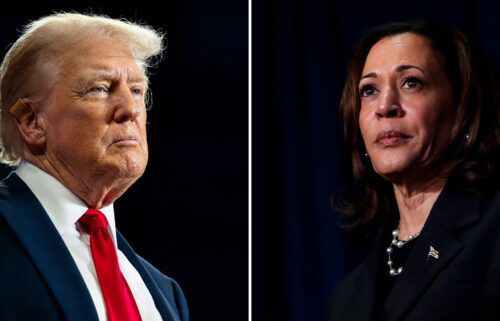Top bank CEO in Australia steps down over money laundering scandal

Two top executives at Westpac, one of Australia’s biggest banks, are out after the company was hit with extensive claims that it had systematically allowed money laundering on its watch.
The company announced Tuesday that CEO Brian Hartzer will step down in the wake of allegations that the bank had violated money laundering and terrorism financing regulations tens of millions of times. Lindsay Maxsted, who serves as chairman of the board, will also move up his retirement to the first half of next year.
Hartzer, who has been on the job since 2015, will be replaced by Chief Financial Officer Peter King while the bank looks for a permanent successor.
The company came under fire last week when AUSTRAC, an Australian regulator that fights financial crime, said that Westpac failed to report more than 19.5 million instructions for transfers in and out of Australia. The regulatory watchdog also said Westpac neglected to do its due diligence on transactions to the Philippines and other parts of Southeast Asia “that have known financial indicators relating to potential child exploitation.”
The agency alleges that Westpac broke the law more than 23 million times, each time in theory “attracting a civil penalty” of between 17 million and 21 million Australian dollars. That could potentially saddle Westpac with a fine that far surpasses the 700 million Australian dollars ($474 million) levied last year on Commonwealth Bank of Australia after that bank admitted it failed to observe laws to prevent money laundering and financing of terrorism.
In a statement Sunday, Maxsted said Westpac was working through its response to the allegations, and was determined to urgently fix the issues raised by the regulator. He added that the bank would commence an independent review.
Many of the allegations centered on how Westpac failed to detect money laundering or risky payments that AUSTRAC said were indicative of child exploitation. One of the alleged offenses listed in a court filing concerned LitePay, the bank’s digital payments service that allows customers to make transfers of small amounts to users outside Australia.
Officials claim in the filing that Westpac has been aware of the connection between child exploitation and “frequent low value payments” sent to the Philippines and Southeast Asia “since at least 2013.” And Westpac’s senior management was “specifically briefed” on how Litepay could be at risk for such abuse in 2016, according to the filing.
The filing also claimed that Westpac failed to roll out a plan to detect some suspicious activity on LitePay until June 2018, and has yet to put in place such “automated detection scenarios” across other international payment systems.
Some of the undetected transactions involved payments to “alleged or suspected child exploitation facilitators,” according to the filing. In one case, a customer opened Westpac accounts after serving a sentence for “child exploitation” offenses, AUSTRAC added.
Westpac responded to AUSTRAC’s filing with a proposed plan last week. The bank said it would undertake investments to reduce the risk of financial crime and roll out “immediate fixes,” such as shutting down LitePay.
“The notion that any child has been hurt as a result of any failings by Westpac is deeply distressing and we are truly sorry,” the company said last week.
That did little to ease pressure on its executives. On Tuesday, Westpac said it would shake up its leadership “in the wake of” the allegations, and “urgently fix” the issues that were outlined by regulators. In addition to the two departures, a longtime board member announced he would not seek re-election.
“As CEO I accept that I am ultimately accountable for everything that happens at the bank,” Hartzer said in a Westpac statement. “And it is clear that we have fallen well short of what the community expects of us, and we expect of ourselves.”
Maxsted said in the statement that the board accepted “the gravity of the issues raised by AUSTRAC.”
“It became clear that Board and management changes were in the best interest of the Bank,” he said.
The bank is the latest to come under fire in Australia’s financial sector, which has been rocked by scandals in recent months.
Last year, the Commonwealth Bank of Australia admitted that it had for years knowingly charged dead clients for advice. Two months later, the company was hit by the anti-money laundering fine.
Also in 2018, AMP — Australia’s top wealth management firm — lost its chairwoman after claims surfaced that the firm had regularly overcharged its customers.
AMP said at the time that it took the allegations “extremely seriously” and was taking appropriate steps to address them. Its general counsel also left the firm, and the company said it would cut remuneration for its board directors by 25% for the rest of 2018.


